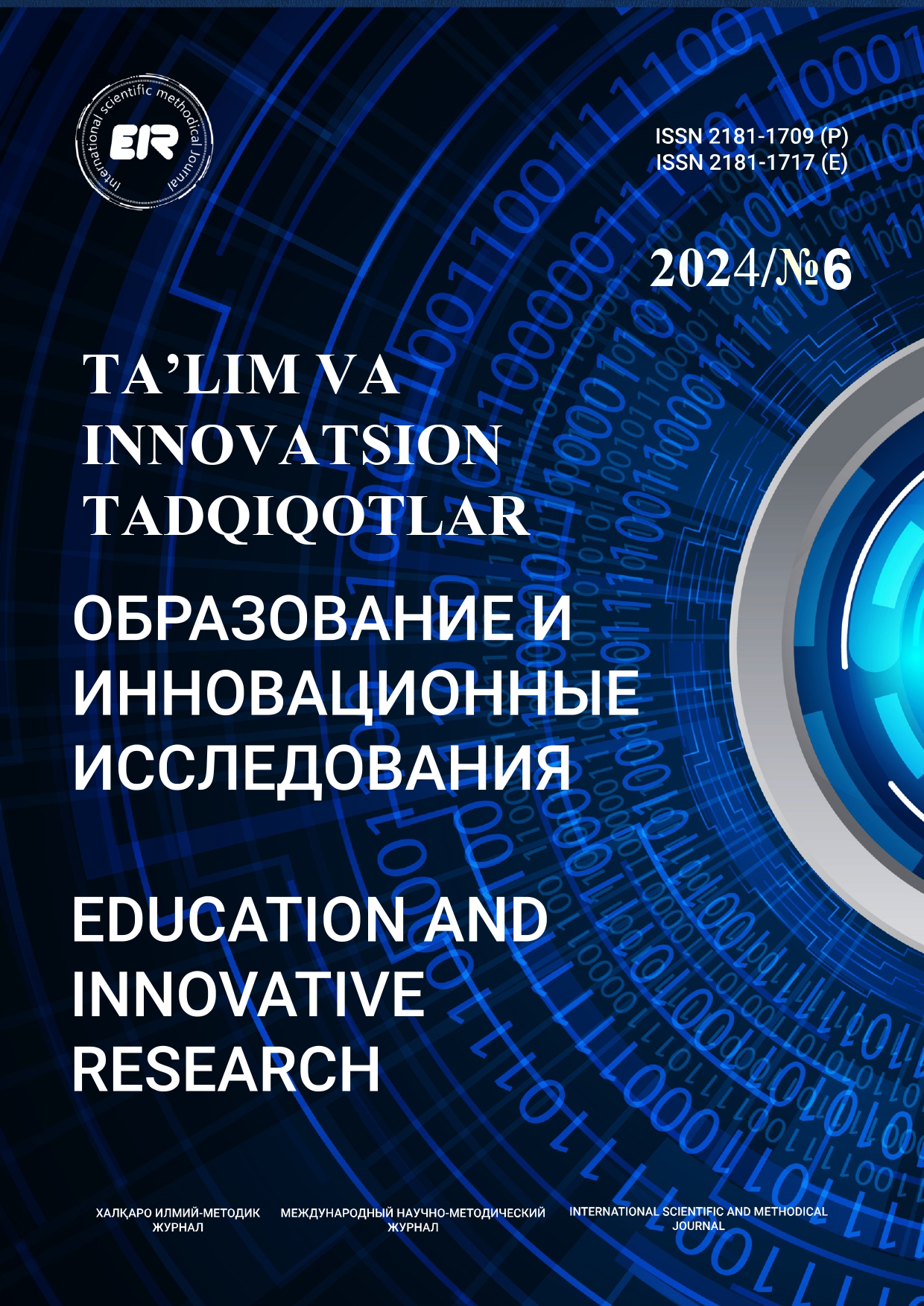ВЛИЯНИЕ ЭМОЦИОНАЛЬНОГО ИНТЕЛЛЕКТА НА КОПИНГ-СТРАТЕГИИ ЛИЧНОСТИ (НА ПРИМЕРЕ СТУДЕНТОВ)
Юлдашев Шерйигит Эргашевич преподаватель Джизакского филиала национального университета Узбекистана Мирзо Улугбека
Ключевые слова:
эмоциональный интеллект (ЭИ), стратегии преодоления трудностей, студенты университетов, управление стрессом, адаптивные механизмы преодоления трудностей, самосознание, саморегуляция, социальная осведомленность, отношения, управление.Аннотация
Эмоциональный интеллект (ЭИ) играет решающую роль в том, как люди воспринимают, обрабатывают и управляют эмоциями, что, в свою очередь, влияет на их стратегии преодоления трудностей. Это исследование направлено на изучение взаимосвязи между ЭИ и стратегиями преодоления трудностей среди студентов, подчеркивая важность ЭИ в управлении стрессом и обеспечении психологического благополучия. На основе выборки студентов университетов исследование исследует, как различные аспекты эмоционального интеллекта коррелируют с различными механизмами преодоления трудностей. Результаты показывают, что более высокие уровни ЭИ связаны с более адаптивными стратегиями преодоления стресса, подчеркивая необходимость образовательных мер для повышения ЭИ для лучшего управления стрессом и общего психического здоровья.
Библиографические ссылки
Goleman, D. (1995). Emotional Intelligence: Why It Can Matter More Than IQ. Bantam Books.
Lazarus, R. S., & Folkman, S. (1984). Stress, Appraisal, and Coping. Springer Publishing Company.
Mayer, J. D., & Salovey, P. (1997). What is emotional intelligence? In P. Salovey & D. Sluyter (Eds.), Emotional Development and Emotional Intelligence: Educational Implications (pp. 3-31). Basic Books.
Schutte, N. S., Malouff, J. M., Hall, L. E., Haggerty, D. J., Cooper, J. T., Golden, C. J., & Dornheim, L. (1998). Development and validation of a measure of emotional intelligence. Personality and Individual Differences, 25(2), 167-177.





